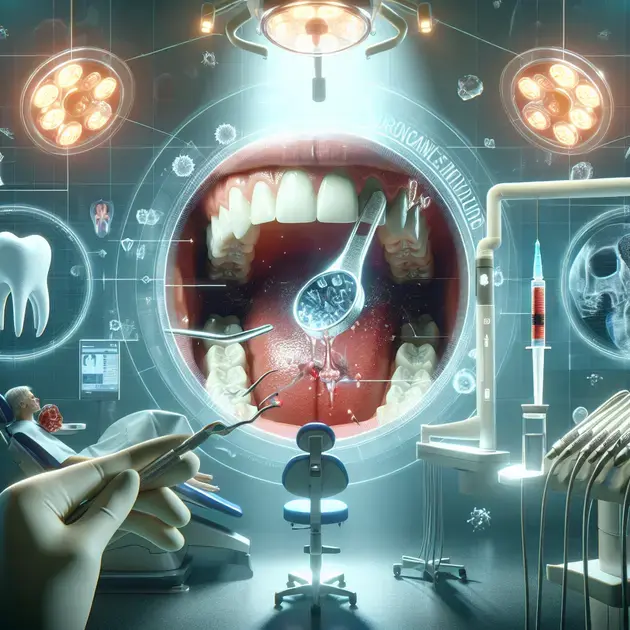Periodontitis is a common and serious gum infection that damages the soft tissue and destroys the bone that supports your teeth. Finding the right medication for periodontitis is crucial in preventing tooth loss and maintaining oral health.
This comprehensive guide aims to explore the most effective medications available for treating periodontitis, including recent advancements and research in the field. With the right treatment plan and medication, managing periodontitis can significantly improve your oral health and quality of life.

Effective Medication Options for Periodontitis
The use of medication is an essential aspect of treating periodontitis, a serious gum infection that can damage the soft tissue and destroy the bone that supports your teeth. There are several effective medication options available to help manage and treat this condition. It is important to work closely with your dentist or periodontist to determine the most appropriate medication for your specific situation. Here are some common medication options for periodontitis:
1. Antibiotics:
Antibiotics are often prescribed to treat periodontitis, especially in cases where the infection is severe or has spread. These medications can help kill the bacteria causing the infection and reduce inflammation in the gums. Common antibiotics used for periodontitis include doxycycline and minocycline. Your dentist will determine the most suitable antibiotic and dosage for your condition.
2. Antiseptic Mouthwashes:
Antiseptic mouthwashes containing chlorhexidine are commonly recommended for patients with periodontitis. These mouthwashes can help reduce plaque and bacteria in the mouth, promoting healing and preventing further infection. It is important to use the mouthwash as directed by your dentist and maintain good oral hygiene practices.
3. Anti-Inflammatory Medications:
Anti-inflammatory medications such as ibuprofen or aspirin can help reduce pain and swelling associated with periodontitis. These medications can be used in conjunction with other treatments to provide relief from discomfort. It is important to follow your dentist’s recommendations regarding the use of anti-inflammatory medications.
4. Prescription-strength Toothpaste:
Prescription-strength toothpaste containing special ingredients such as fluoride or triclosan may be prescribed to help control bacteria and plaque in the mouth. Using this toothpaste as part of your daily oral hygiene routine can help prevent the recurrence of periodontitis.
5. Oral Antibacterial Rinse:
In some cases, dentists may recommend an oral antibacterial rinse to help control bacteria in the mouth and reduce the risk of developing periodontitis. These rinses can be used daily as part of your oral hygiene routine.
In conclusion, effective medication options play a crucial role in the management and treatment of periodontitis. By working closely with your dentist and following their recommendations, you can help control the infection and promote the health of your gums and teeth.
Understanding the Impact of Periodontitis Medication
Medication for periodontitis can have a significant impact on the overall treatment and management of this condition. Understanding how these medications work and their effects is important for patients undergoing treatment. Here are some key points to consider regarding the impact of periodontitis medication:
1. Reduction of Inflammation:
Medications prescribed for periodontitis, such as antibiotics and anti-inflammatory drugs, are designed to reduce inflammation in the gums. This can help alleviate pain and discomfort associated with the condition and promote healing of the affected tissues.
2. Control of Bacterial Infection:
Antibiotics and antiseptic mouthwashes are crucial for controlling the bacterial infection that causes periodontitis. These medications target the harmful bacteria in the mouth, reducing their numbers and preventing further damage to the gums and bone.
3. Maintenance of Oral Hygiene:
Periodontitis medication, such as prescription-strength toothpaste and oral antibacterial rinses, help maintain optimal oral hygiene. These products control plaque and bacteria buildup, reducing the risk of infection and supporting the health of the gums.
4. Prevention of Recurrence:
By following the prescribed medication regimen and maintaining good oral hygiene practices, patients can help prevent the recurrence of periodontitis. Consistent use of medication and regular dental check-ups are crucial for long-term management of the condition.
5. Overall Oral Health Improvement:
The impact of periodontitis medication extends beyond treating the immediate symptoms of the condition. By promoting oral health and preventing further damage, these medications contribute to overall improvements in oral health and quality of life.
In summary, understanding the impact of periodontitis medication is essential for patients undergoing treatment. By recognizing the benefits of these medications and following the recommendations of dental professionals, individuals can effectively manage this condition and maintain a healthy mouth.

Understanding the Impact of Periodontitis Medication
Periodontitis medication plays a crucial role in the management of gum disease by targeting the underlying causes and symptoms. By understanding the impact of these medications, patients can make informed decisions about their oral health treatment plans. The medications prescribed for periodontitis are designed to reduce inflammation, control bacterial growth, and support the healing process of the gums. They can be administered in various forms, such as mouth rinses, gels, or systemic medications taken orally.
When patients adhere to their prescribed medication regimen, they can experience significant improvements in their gum health. The medications work to combat the infection and inflammation present in the gums, ultimately leading to reduced pain, swelling, and bleeding. By tackling the root causes of periodontitis, these medications help prevent further progression of the disease and promote overall oral health.
In addition to addressing the immediate symptoms of periodontitis, medication can also have a long-term impact on oral health outcomes. By maintaining good oral hygiene habits and regularly using prescribed medications, patients can prevent the recurrence of gum disease and protect the integrity of their gums and teeth. Understanding the impact of periodontitis medication is essential for patients to take control of their oral health and achieve lasting results.
Patients should consult with their dental healthcare provider to discuss the most suitable medication options for their specific condition. By partnering with a knowledgeable professional, patients can receive personalized treatment plans tailored to their needs and goals. With the right medication regimen and proper oral care habits, individuals can effectively manage periodontitis and preserve their oral health for years to come.
Overall, understanding the impact of periodontitis medication empowers patients to actively participate in their oral health journey and make informed decisions about their treatment options. By recognizing the benefits of these medications and committing to a comprehensive oral care routine, individuals can enhance the effectiveness of their gum disease management and enjoy a healthier smile.
Innovations in Medication for Periodontitis Management
Recent innovations in medication for periodontitis management have revolutionized the treatment landscape for individuals battling gum disease. These groundbreaking advancements offer new possibilities for more effective and targeted interventions to address the complexities of periodontitis. By leveraging cutting-edge technologies and research findings, healthcare providers can now offer innovative medication options that deliver superior outcomes for patients.
One notable innovation in periodontitis medication is the development of personalized treatment approaches that take into account the unique characteristics of each patient’s condition. By tailoring medication regimens to individual needs and factors, healthcare providers can optimize the effectiveness of the treatment and minimize potential side effects. This personalized approach ensures that patients receive the most appropriate and beneficial medication for their specific case.
Another significant advancement in periodontitis medication is the introduction of novel drug delivery systems that enhance the efficiency and targeted action of medications in the oral cavity. These innovative delivery mechanisms allow for precise application of medication to the affected areas of the gums, ensuring maximum therapeutic effects with minimal systemic exposure. By utilizing these advanced drug delivery technologies, healthcare providers can improve treatment outcomes and patient compliance.
Furthermore, innovations in medication for periodontitis management have led to the discovery of new therapeutic agents and formulations that offer improved efficacy and tolerability. Patients can now benefit from a wider range of medication options that are better suited to their individual preferences and needs. With access to these innovative medications, individuals can experience enhanced relief from gum disease symptoms and a higher likelihood of successful treatment outcomes.
Overall, the continuous evolution of medication innovations in periodontitis management demonstrates a commitment to advancing patient care and improving oral health outcomes. By embracing these groundbreaking developments, healthcare providers can offer their patients the most effective and personalized treatment options available, ultimately leading to better management of periodontitis and the preservation of optimal oral health.
Maximizing Treatment Outcomes with Advanced Medication
Maximizing treatment outcomes with advanced medication is a key objective in the management of periodontitis, as it can significantly impact the success and longevity of oral health interventions. By harnessing the benefits of cutting-edge medications and treatment strategies, patients can optimize their chances of achieving favorable outcomes and maintaining healthy gums and teeth. Advanced medication offers unique advantages that can enhance the effectiveness of periodontitis management and improve overall oral health.
One way to maximize treatment outcomes with advanced medication is to ensure strict adherence to the prescribed treatment regimen. By following the instructions provided by healthcare providers and consistently taking the recommended medications, patients can support the healing process of their gums and control the progression of periodontitis. Compliance with medication and treatment plans is essential for achieving long-term benefits and preventing the recurrence of gum disease.
Another strategy for maximizing treatment outcomes with advanced medication is to combine medication therapy with comprehensive oral care practices, such as regular brushing, flossing, and professional cleanings. These complementary measures work synergistically with medication to combat bacterial growth, reduce inflammation, and promote gum health. By adopting a holistic approach to oral care, patients can optimize the effects of advanced medication and improve the overall condition of their gums.
Furthermore, patients can maximize treatment outcomes with advanced medication by staying informed about the latest developments in periodontitis management and discussing new treatment options with their healthcare providers. By remaining proactive and engaged in their care, individuals can take advantage of emerging medications and therapies that offer enhanced benefits and improved outcomes. Being an active participant in the treatment process empowers patients to make informed decisions about their oral health and achieve the best possible results.
In conclusion, maximizing treatment outcomes with advanced medication requires a combination of patient compliance, comprehensive oral care practices, and proactive engagement with healthcare providers. By taking a proactive approach to oral health management and leveraging the benefits of advanced medication, individuals can effectively control periodontitis, prevent disease progression, and enjoy a healthier smile for years to come.
Conclusion
Understanding the impact of periodontitis medication is crucial for patients looking to effectively manage gum disease. By taking prescribed medications that target inflammation and bacterial growth, individuals can experience improved gum health, reduced pain, and prevention of disease progression. Long-term use of medication, coupled with good oral hygiene practices, can help maintain gum health and prevent the recurrence of periodontitis.
Innovations in periodontitis medication have led to personalized treatment approaches that consider individual patient needs, novel drug delivery systems for targeted action, and new therapeutic agents for enhanced efficacy. These advancements offer patients a wider range of medication options tailored to their preferences and needs, ultimately improving treatment outcomes and oral health. Healthcare providers embracing these innovations can provide more effective and personalized care for better management of periodontitis.
Maximizing treatment outcomes with advanced medication requires patient compliance, comprehensive oral care practices, and staying informed about the latest developments in periodontitis management. By adhering to prescribed regimens, combining medication therapy with proper oral care, and engaging with healthcare providers, individuals can control periodontitis, prevent disease progression, and enjoy a healthier smile in the long run. Taking a proactive stance towards oral health and leveraging advanced medication can lead to successful treatment outcomes and improved overall well-being.



